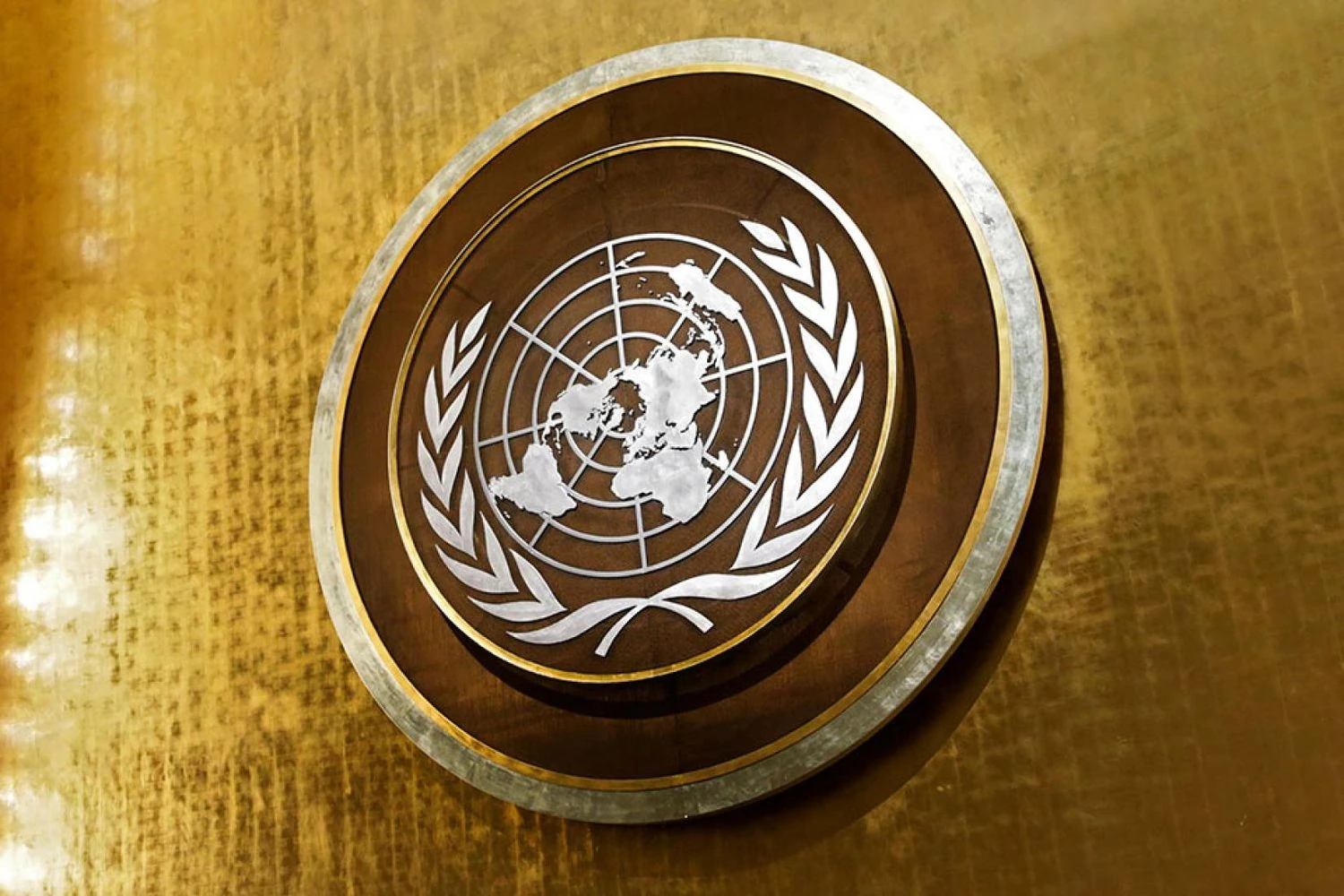US ignored UN human rights meeting: human rights activists sound the alarm – Українські Національні Новини

Report on United States Non-Participation in UN Human Rights Review and Implications for Sustainable Development Goals
A United Nations meeting to conduct the Universal Periodic Review (UPR) of the human rights situation in the United States convened without the participation of a U.S. delegation. This development has been identified by human rights organizations as a significant setback for global engagement and accountability, with profound implications for the advancement of the 2030 Agenda for Sustainable Development.
The Universal Periodic Review and SDG 16
The UPR process is a critical mechanism for international cooperation and peer review, designed to assess the human rights records of all 193 UN Member States. This process directly supports the objectives of Sustainable Development Goal 16 (Peace, Justice and Strong Institutions), which aims to build effective, accountable, and inclusive institutions at all levels. The non-attendance of a Member State is a rare occurrence that undermines this global framework for accountability.
Analysis of the U.S. Position and International Response
Official Justification and Non-Compliance
The United States did not submit the requisite national report on its human rights activities ahead of the review. A State Department official articulated the U.S. position by stating an unwillingness to be lectured by certain members of the Human Rights Council (HRC), such as Venezuela, China, or Sudan. The official noted that U.S. participation in international bodies is aimed at promoting American interests and values.
Reactions from Stakeholders
The decision prompted widespread concern from various international and domestic actors, highlighting a retreat from the principles of multilateralism enshrined in SDG 17 (Partnerships for the Goals).
- Amnesty International: Labeled the absence a “dereliction of duty.”
- Robert F. Kennedy Human Rights: A senior attorney expressed that the absence should be of “deep concern to all Americans,” as it removes a layer of oversight on domestic human rights issues.
- U.S. Domestic Officials: Opponents of the administration, including Philadelphia District Attorney Larry Krasner, attended the session in Geneva to engage with other states and NGOs, stating, “We came because the President of the United States is not doing his job.”
- Member States: The delegate from Cuba condemned the action as “irresponsible behavior,” while China expressed regret over a decision it characterized as showing “disrespect.”
Impact on Key Sustainable Development Goals
The issues slated for discussion at the review, and the U.S. refusal to engage, directly impact progress on several SDGs beyond the foundational goals of 16 and 17.
SDG 10: Reduced Inequalities
The agenda for the review included critical topics directly related to the targets of SDG 10. These were:
- Policies concerning the deportation of migrants.
- Restrictions on the rights of LGBTQ individuals.
By avoiding discussion on these matters, the U.S. sidestepped an opportunity for international dialogue aimed at ensuring equal opportunity and reducing inequalities of outcome for vulnerable populations.
SDG 5 and SDG 3: Gender Equality and Good Health
The refusal to address restrictions on LGBTQ rights also represents a challenge to SDG 5 (Gender Equality) and SDG 3 (Good Health and Well-being). Discriminatory policies are a barrier to achieving full gender equality and can have severe negative impacts on the mental and physical health of affected communities.
SDG 16: Justice and Institutional Accountability
Long-standing issues such as the application of the death penalty were also on the agenda. This topic is central to discussions on access to justice for all, a key target of SDG 16. The U.S. failure to participate in the review process is seen by critics as an attempt to evade accountability for its domestic justice system and its alignment with international human rights norms.
Conclusion
The United States’ absence from its Universal Periodic Review marks a significant divergence from international cooperation on human rights. This action directly challenges the framework of SDG 16 (Peace, Justice and Strong Institutions) and undermines the spirit of SDG 17 (Partnerships for the Goals). Furthermore, the refusal to engage on specific agenda items concerning migrant rights, LGBTQ rights, and the justice system creates obstacles to achieving SDG 10 (Reduced Inequalities) and other related goals. The event underscores a tension between national policy and the collective, global commitment to the 2030 Agenda for Sustainable Development.
Identified Sustainable Development Goals (SDGs)
-
SDG 10: Reduced Inequalities
The article discusses issues directly related to inequality and discrimination. It mentions “restrictions on LGBTQ rights” and the “deportation of migrants,” which are policies that affect specific, often marginalized, groups and are central to the goal of reducing inequalities within a country.
-
SDG 16: Peace, Justice and Strong Institutions
This goal is central to the article’s theme. The entire piece revolves around a UN human rights review, the US’s refusal to participate, and the lack of accountability for its human rights record. Issues like “the death penalty,” the need for “oversight of human rights abuses,” and the role of institutions like the UN Human Rights Council and the justice system (represented by the Philadelphia District Attorney) are core components of SDG 16.
-
SDG 17: Partnerships for the Goals
The article highlights a breakdown in global partnership. The US’s decision to cease engagement with the UN Human Rights Council and its absence from the review meeting is described as “Washington’s withdrawal from global engagement.” This directly contradicts the spirit of SDG 17, which emphasizes the importance of international cooperation and strong global partnerships to achieve sustainable development.
Specific Targets Identified
-
Targets under SDG 10: Reduced Inequalities
- Target 10.2: “By 2030, empower and promote the social, economic and political inclusion of all, irrespective of age, sex, disability, race, ethnicity, origin, religion or economic or other status.” The article’s mention of “restrictions on LGBTQ rights” points to policies that hinder the political and social inclusion of this group, making this target highly relevant.
- Target 10.3: “Ensure equal opportunity and reduce inequalities of outcome, including by eliminating discriminatory laws, policies and practices.” The policies mentioned, such as restrictions on LGBTQ rights and migrant deportations, can be considered discriminatory practices that this target aims to eliminate.
- Target 10.7: “Facilitate orderly, safe, regular and responsible migration and mobility of people, including through the implementation of planned and well-managed migration policies.” The reference to the “deportation of migrants by flights” as a key policy under review directly relates to the management of migration policies.
-
Targets under SDG 16: Peace, Justice and Strong Institutions
- Target 16.3: “Promote the rule of law at the national and international levels and ensure equal access to justice for all.” The discussion of “the death penalty” as a long-standing human rights issue on the UN’s agenda for the US is directly connected to the application of law and access to justice.
- Target 16.6: “Develop effective, accountable and transparent institutions at all levels.” The central theme of the article—the US’s refusal to participate in the UN’s universal periodic review and submit a report on its activities—is a direct challenge to the principles of accountability and transparency of national institutions on an international stage. The Philadelphia DA’s statement that President Trump “doesn’t want to be held accountable” reinforces this connection.
-
Targets under SDG 17: Partnerships for the Goals
- Target 17.16: “Enhance the global partnership for sustainable development, complemented by multi-stakeholder partnerships…” The article details the US’s “withdrawal from global engagement” and its decision to “cease engagement with the Geneva Human Rights Council,” which undermines the global partnership for human rights and sustainable development.
- Target 17.17: “Encourage and promote effective public, public-private and civil society partnerships…” The article shows this target in action through the efforts of non-governmental organizations like “Amnesty International” and “Robert F. Kennedy Human Rights,” as well as sub-national government officials (“Larry Krasner, District Attorney of Philadelphia”), who came to the UN to engage in dialogue when the national government would not.
Implied Indicators for Measurement
-
Indicators for SDG 10 Targets
- Existence of discriminatory laws and policies: The article explicitly mentions “restrictions on LGBTQ rights” as an issue on the UN’s agenda. The existence or repeal of such policies serves as a direct indicator of progress towards Target 10.3.
- National migration and deportation policies: The policy of “deportation of migrants by flights” is highlighted. The nature, scale, and human rights compliance of such policies can be used as an indicator to measure whether migration is being managed responsibly, as per Target 10.7.
-
Indicators for SDG 16 Targets
- Application of the death penalty: The article identifies “the death penalty” as a long-standing problem. The number of executions or the legal status of capital punishment can serve as an indicator for Target 16.3 concerning the rule of law and justice.
- Participation in international oversight mechanisms: The primary focus of the article is the US’s failure to participate in the UN’s universal periodic review. A country’s participation, submission of reports, and engagement with recommendations are clear indicators of its commitment to accountable and transparent institutions (Target 16.6).
-
Indicators for SDG 17 Targets
- Engagement with global governance bodies: The US’s decision to “cease engagement with the Geneva Human Rights Council” is a key event in the article. A country’s membership and active participation in such international bodies is a direct indicator of its commitment to global partnerships (Target 17.16).
Summary of Findings
| SDGs | Targets | Indicators |
|---|---|---|
| SDG 10: Reduced Inequalities |
10.2: Promote social, economic and political inclusion of all.
10.3: Ensure equal opportunity and eliminate discriminatory policies. 10.7: Facilitate orderly, safe, regular and responsible migration. |
Existence of policies creating “restrictions on LGBTQ rights.”
Implementation of policies concerning the “deportation of migrants by flights.” |
| SDG 16: Peace, Justice and Strong Institutions |
16.3: Promote the rule of law and ensure equal access to justice.
16.6: Develop effective, accountable and transparent institutions. |
The legal status and use of “the death penalty.”
A state’s participation in and submission of reports to international review mechanisms like the UN’s universal periodic review. |
| SDG 17: Partnerships for the Goals |
17.16: Enhance the global partnership for sustainable development.
17.17: Encourage and promote effective civil society partnerships. |
A state’s engagement with global institutions like the “Geneva Human Rights Council.”
The active engagement of NGOs (“Amnesty International”) and sub-national officials in international forums. |
Source: unn.ua
What is Your Reaction?
 Like
0
Like
0
 Dislike
0
Dislike
0
 Love
0
Love
0
 Funny
0
Funny
0
 Angry
0
Angry
0
 Sad
0
Sad
0
 Wow
0
Wow
0













































































